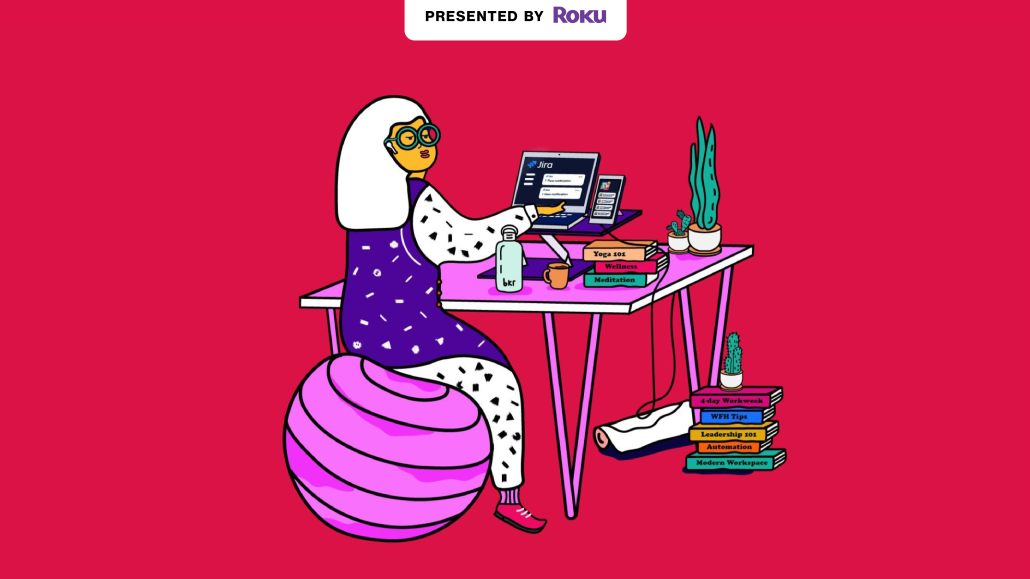Secure your place at the Digiday Media Buying Summit in Nashville, March 2-4
‘It’s back to a talent market again’: Advertising and marketing execs navigate the future of work at Advertising Week

Keep up to date with Digiday’s annual coverage of Advertising Week in New York. More from the series →
The COVID-19 pandemic has upended the way we work, pushing topics like flexible work schedules, hybrid work environments and diversity to the top of minds for marketing and advertising leaders. At this year’s Advertising Week, which was a hybrid virtual and in-person event in New York, industry executives sounded off on what the future of work could look like and how to best navigate it.
That even touches on benefits. Prior to the pandemic, there was a heavy emphasis on job perks such as ping pong tables, cold brew coffee on tap, cafeterias with free lunch and more, Vivian Chen, founder and CEO of Rise professional social network for Gen Z and millennial women. The pandemic has changed that ideology, putting an emphasis instead on work-life balance and employee resources instead, she said.
“It’s back to a talent market again,” she said during a morning panel on workplace transitions. “There’s a complete realignment about what’s important in life.”
With The Great Resignation looming above the industry, and America’s workforce at large, more and more employers are rolling out benefits beyond healthcare insurance, including mental health stipends, flexible work and even immediate payment for work.
“I’m old enough to remember work-life balance and the idea that we come to work to work and to learn skill sets,” Tabitha Holbért, founder of WholeBare, period relief company, said at the same panel. “Those shouldn’t be benefits. Those should be how we live our lives.”
The future of work, however, isn’t limited to just flexible work environments. In two separate Advertising Week sessions, executives pointed to diversity, equity and inclusion initiatives to make workplaces more inclusive.
During a panel on women and working parents, Jennifer Warren, vp of global brand marketing at Indeed reported that more than half of working parents felt like they had to choose between doing well at work or taking care of their family, according to Indeed’s research.
“That is a terrible choice to have to make,” Warren said.
A second panelist, Natalie Mayslich, general manager of consumer and enterprise at Care.com made a similar comment. “It took a pandemic to shine a light on just how far behind we were relative to where we hoped to be,” Mayslich said.
It’s no different on the DE&I front, according to Jeff Marshall, chief diversity officer at UM Worldwide agency, who spoke on a separate panel about company culture.
“We are still in a discovery space with corporate America,” he said. “When 2020 happened, a lot of the country woke up, and what corporate America did was [say], ‘Oh my god, let’s pay attention.’”
After the murder of George Floyd, agencies rolled out diversity initatives, staffing up DE&I leaderships roles with women and people of color. But seemingly, there’s still work to be done. In Digiday’s Confession series, two agency executives of color sounded the alarm on just how shallow those initiatives can be.
Per Marshall, it’ll take a top down approach, in which leadership practices empathy, awareness and humility, to bring change to the agency and marketing worlds.
“We’re kind of still stuck in that discovery loop,” he said. “What I want us to do is move into an action stage.”
More in Marketing

Future of Marketing Briefing: AI’s branding problem is why marketers keep it off the label
The reputational downside is clearer than the branding upside, which makes discretion the safer strategy.

While holdcos build ‘death stars of content,’ indie creative agencies take alternative routes
Indie agencies and the holding company sector were once bound together. The Super Bowl and WPP’s latest remodeling plans show they’re heading in different directions.

How Boll & Branch leverages AI for operational and creative tasks
Boll & Branch first and foremost uses AI to manage workflows across teams.





